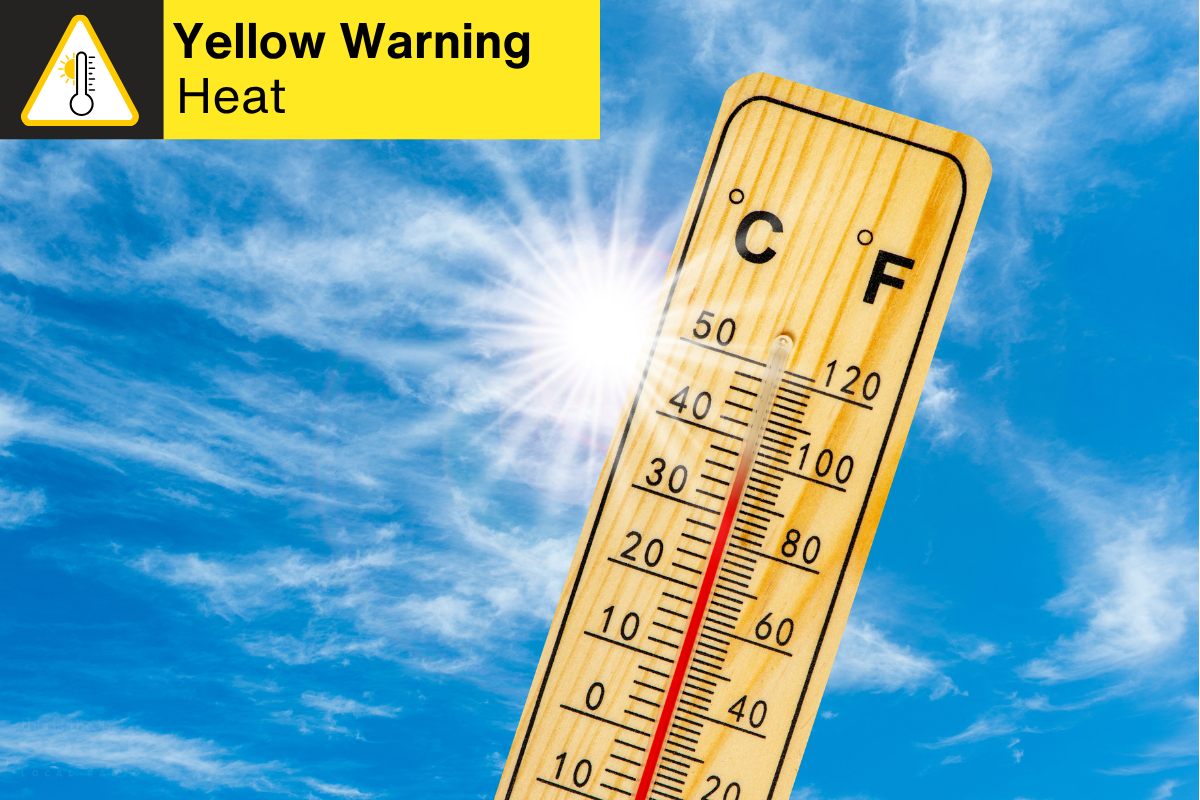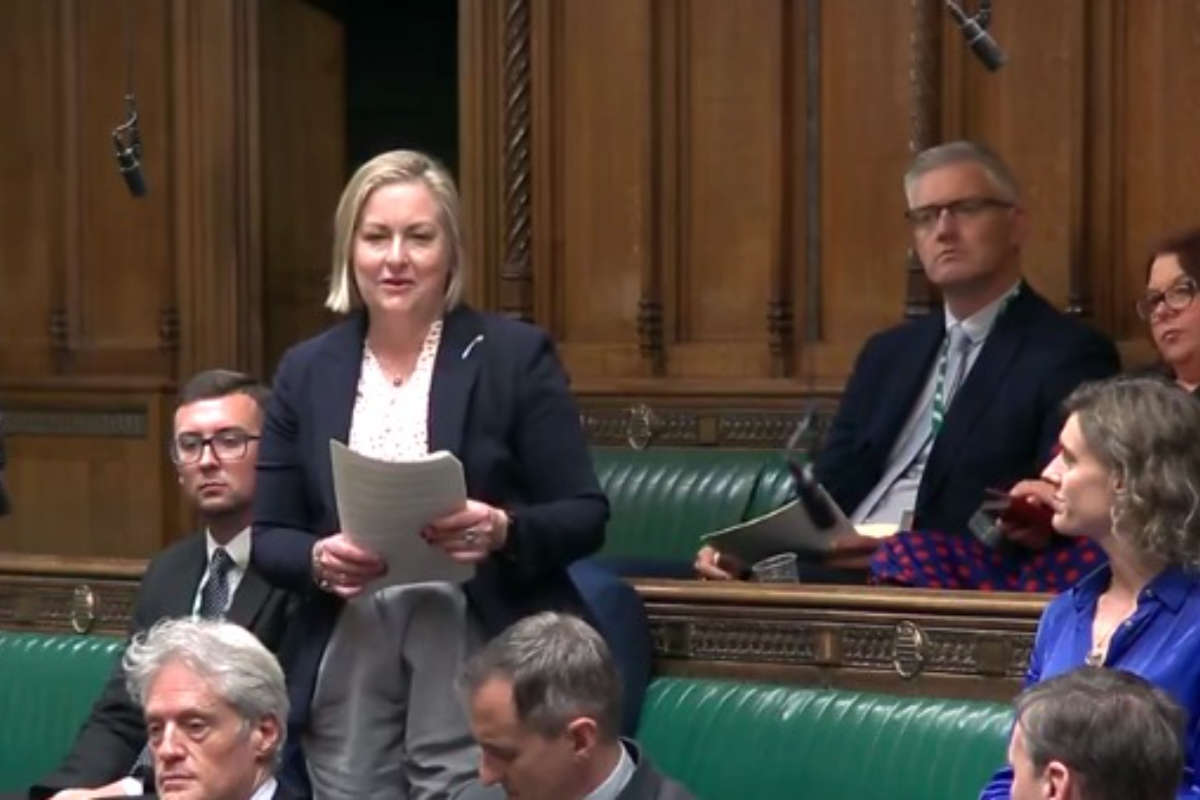
A yellow heat health alert has been issued for Yorkshire and The Humber, encompassing the Yorkshire Coast, by the UK Health Security Agency (UKHSA) in partnership with the Met Office
The alert is in effect from 12pm on Wednesday 18 June until 6pm on Sunday 22 June.
The weather health alerting system aims to provide an early warning when adverse temperatures are likely to impact the health and wellbeing of the population. While many welcome hot weather, prolonged high temperatures can pose significant health risks, with England experiencing an average of 2,000 heat-related deaths annually.
Local health officials are urging residents to take precautions. A local GP in East Yorkshire is encouraging people to follow health advice and stay safe. Dr Satpal Shekhawat, emphasised that the heat is likely to impact vulnerable individuals most, potentially leading to increased demand on health and care services. Dr Shekhawat stated,
"Whilst we want everyone to enjoy the good weather, the very young, the elderly and the seriously ill should take extra care. These groups are most susceptible to the risk of health problems when the weather is hot."
He further advised that
"The heat can make heart and breathing problems worse, and cause symptoms such as dehydration, overheating, heat exhaustion and heat stroke. If you see someone struggling, offer them water and help them into the shade."
For Yorkshire and The Humber, the yellow alert carries a Risk Score of 7, indicating a Low impact with a Medium likelihood. The UKHSA details that
"Minor impacts are likely across health and social services, including: increased use of healthcare services by vulnerable people, greater risk to life of vulnerable people, [and] increased potential for indoor environments to become very warm".
Hot weather can affect anyone, but certain groups are particularly vulnerable. These include older people, especially those over 75, individuals who live alone or in a care home, and those with serious or long-term illnesses such as heart or lung conditions, diabetes, kidney disease, Parkinson's disease, or some mental health conditions. Babies, the very young, the bed-bound, those with drug or alcohol addictions, or with Alzheimer's disease may also find it challenging to regulate their body temperature.
Additionally, people who spend significant time outdoors or in hot indoor environments, such as those residing in top-floor flats, the homeless, or individuals whose jobs are outside, face increased risk.
To mitigate these risks, the UKHSA offers several key recommendations. Residents are advised to look out for those who may struggle to keep themselves cool and hydrated, especially older individuals, those with underlying health conditions, and those living alone.
Staying cool indoors is crucial, which can involve closing curtains on sun-facing rooms. When venturing outdoors, it is suggested to keep out of the sun between 11am and 3pm, walk in the shade, apply sunscreen regularly, and wear a wide-brimmed hat. Avoiding exercise during the hottest parts of the day and ensuring sufficient hydration by drinking plenty of fluids while avoiding excess alcohol are also vital. Individuals should never leave anyone, especially infants, young children, or animals, in a closed, parked vehicle.
For those considering cooling off in open water, the Royal Life Saving Society warns that water temperatures may still be low, potentially leading to difficulties caused by cold water shock. They advise choosing safe places for swimming, such as lifeguarded beaches, and generally taking care and following local safety advice when entering open water.
The public is urged to watch out for signs of heat-related illness such as heat exhaustion or heatstroke and know when to seek help.




 North Yorkshire Fire Service Makes Improvements
North Yorkshire Fire Service Makes Improvements
 Eastfield Prepares for Council By-Election
Eastfield Prepares for Council By-Election
 Board Say Scarborough Athletic Face £250,000 Shortfall
Board Say Scarborough Athletic Face £250,000 Shortfall
 Council Approves £3.2m ‘Backstop’ for Repairs to Scarborough Athletic Pitch
Council Approves £3.2m ‘Backstop’ for Repairs to Scarborough Athletic Pitch
 Scarborough's New Veterans Hub to Host Inaugural Meeting
Scarborough's New Veterans Hub to Host Inaugural Meeting
 East Riding Children’s Services Win Prestigious National Award
East Riding Children’s Services Win Prestigious National Award
 Police Conclude Scarborough Men Died from Natural Causes
Police Conclude Scarborough Men Died from Natural Causes
 Haematology Service Changes Impacting Yorkshire Coast Patients
Haematology Service Changes Impacting Yorkshire Coast Patients
 Human Remains Found in Burned-out Vehicle
Human Remains Found in Burned-out Vehicle
 Dog Owners Urged to Keep Dogs on Leads to Protect Flamborough Puffins
Dog Owners Urged to Keep Dogs on Leads to Protect Flamborough Puffins
 East Riding Mayor Wants More Ambition From Government
East Riding Mayor Wants More Ambition From Government
 Scarborough and Whitby MP On Treatment Concerns
Scarborough and Whitby MP On Treatment Concerns










Comments
Add a comment